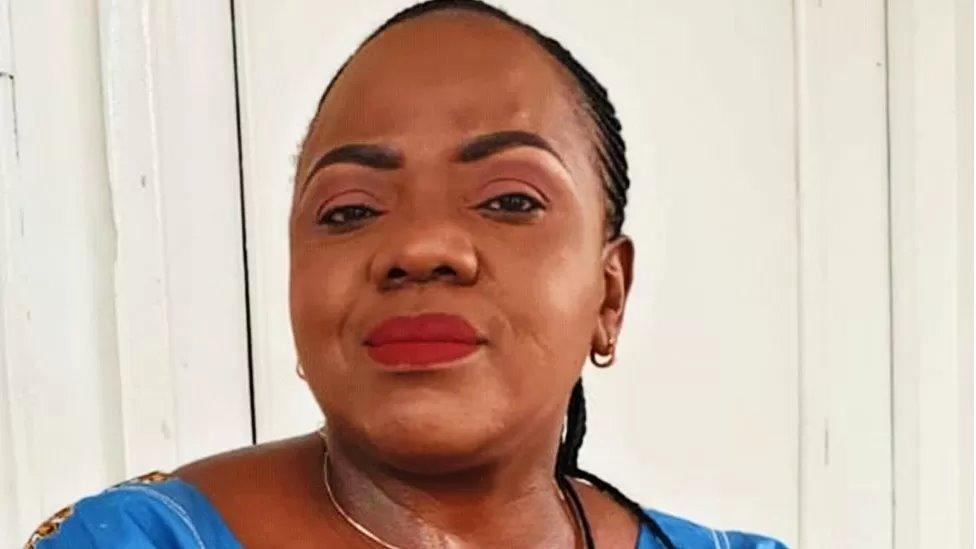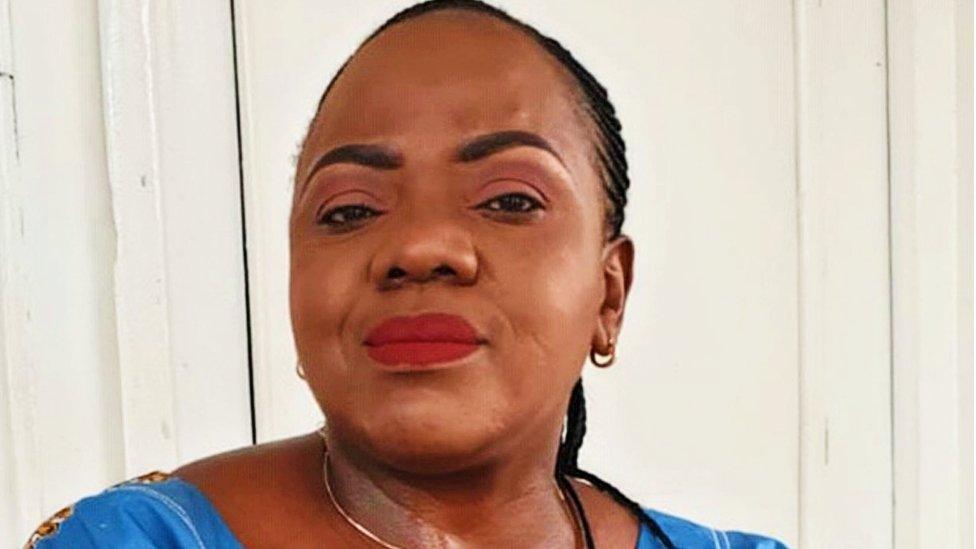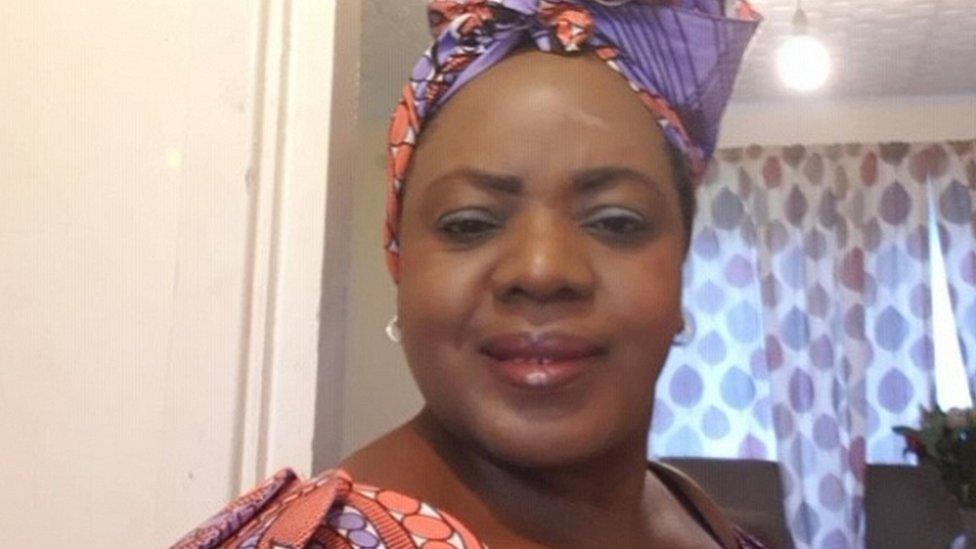Belly Mujinga: Third anniversary of frontline worker's Covid death
- Published

Belly Mujinga was one of the first frontline workers to die from Covid
A union has marked the third anniversary of the death of a railway worker who was one of the first frontline staff to die with Covid.
Belly Mujinga, 47, said she was coughed and spat on at work at London Victoria station and died in April 2020.
At the time there was no vaccine and PPE was not always readily available.
The Transport Salaried Staffs Association (TSSA) paid tribute to her as it called for "more focus" on health and safety for all workers.
The married mother-of-one was working as a sales clerk at the station on 21 March 2020 when she was allegedly spat at by someone who claimed to have the virus.
"Nothing can bring her back, but she lives on in the memory of those who knew her or who learnt her story," Marios Alexandrou, the TSSA's interim president, said.
"While we remember Belly today, our union continues to fight for safe and healthy workplaces for all of our members."
Ms Mujinga, who had underlying health issues that her family said placed her in the "vulnerable" category, was one of the first frontline workers to die with the virus.
A 57-year-old man was interviewed under caution but British Transport Police (BTP) found no further action should be taken.

Ms Mujinga was working as a sales clerk at the station
The man had been tested for Covid-19 on 25 March 2020 and was found not to be infected with it.
A decision not to charge him led to an outcry, prompting BTP to ask the Crown Prosecution Service (CPS) to review its decision after more than two million people signed a petition.
Prosecutors upheld the decision stating that CCTV footage and witness evidence had been, "insufficiently clear and consistent to substantiate allegations of deliberate coughing or spitting".
Her employer, Govia Thameslink Railway (GTR), later said no complaints about spitting were made at the time, while police also "concluded that no spitting incident took place".
A coroner ruled last May that an inquest into her death would not look at the alleged Covid spit attack.

Follow BBC London on Facebook, external, Twitter , externaland Instagram, external. Send your story ideas to hellobbclondon@bbc.co.uk, external
- Published27 May 2022

- Published6 August 2020
